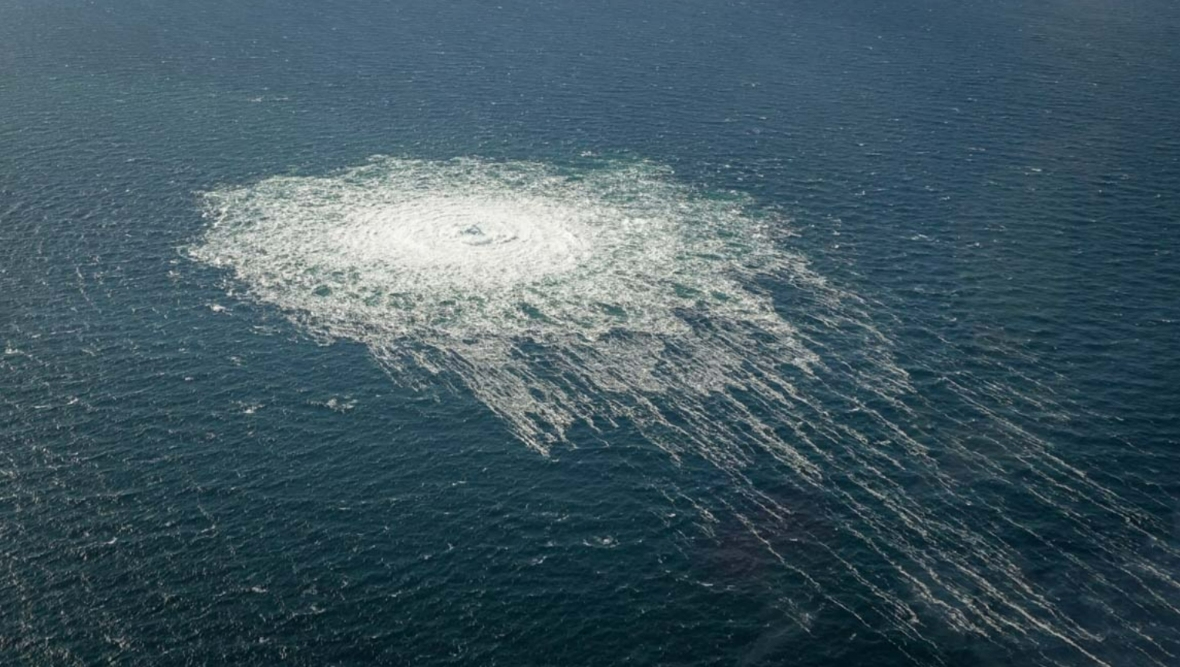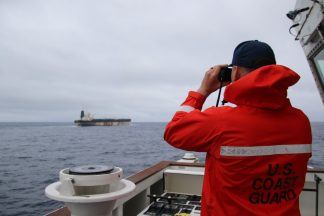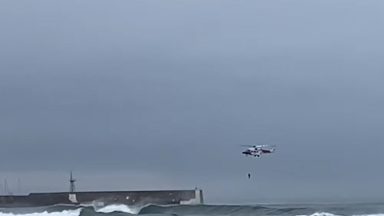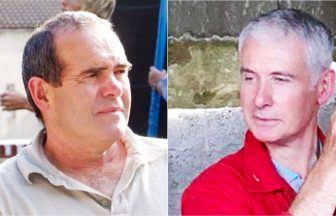A Navy ship has been sent to the North Sea to help protect underwater infrastructure following suspected attacks on the Nord Stream gas pipelines.
Russia has been accused of sabotaging the undersea pipelines, which led to huge methane leaks in the Baltic Sea, but the Kremlin has denied any involvement.
The Ministry of Defence says a frigate is now in the North Sea, working with the Norwegian Navy, to reassure those working near the gas pipelines.
The Signal Type 23 is a specialist submarine hunter designed to detect and identify undersea craft.
George Allison, editor of UK Defence Journal, believes the move will act as a “deterrent”.
“People are aware of what the ship can do and the fact very little would get by it,” he said.
The Russian state-owned energy firm Gazprom says the leaks have now stopped on the pipelines. But some experts believe that its likely the attack was state backed.
Peter Cameron, professor of international energy law and policy at the University of Dundee, said while events like this are highly unusual, they are indicative of a “new worrying trend”.
He also explained that it was likely done using new technology such as drones carrying explosives.
“The recent events have been dramatic, unexpected and slightly frightening. People do these kinds of things to create uncertainty and anxiety and it’s certainly succeeded. The new technology could very effective and damaging. It’s a different level of sophistication.”
He described the frigate as a “signal” from the UK, adding: “It’s very important to give any aspiring terrorist, state-backed or not, a message that you would act firmly and promptly to protect your infrastructure.
“People will be doubly concerned about shortages – there’s now less physical capacity to transfer the commodity to the market than ever before. It’s really a very damaging contributor to the climate of uncertainty around the energy crisis.”
Meanwhile, the energy regulator Ofgem has said this winter will be more challenging because of the disruption in transporting Russian gas to Europe.
The UK only gets a small amount for gas from Russia but Ofgem said sensible contingency measures have been put in place amid fears over a gas shortage.
Paul de Leeuw from the RGU Energy Transition Institute warned the attacks on the Nord Stream pipelines could have a “huge impact” on gas and electricity supplies.
He said around 85% of homes in the UK use natural gas for heating and 40% use it for electricity, compared with 50% of mainland Europe.
He said: “If something happens to our gas supply, we see it directly in electricity and heating regeneration.
“On the back of (Russian President Vladimir) Putin’s war in Ukraine we’re in a really tight situation. You can’t suddenly take 40% of gas out of Europe and not see an impact.
“There’s a real conversation across Europe around what we would do in a scenario if there wasn’t gas going around and how we would deal with it.
“This is a unique situation. Nothing like this has happened before and we need to seriously prepare and know what we would do to protect people where we can.”
“The issues associated with Nord Stream are having a huge impact on the market. If it can happen to these pipelines it can happen to others.”
Defence secretary Ben Wallace announced the UK Government will acquire “two specialist ships” with the capability to patrol and protect the network from Russia as Britain’s “internet and energy are highly reliant on pipelines and cables”.
He said: “The first multi-role survey ship for seabed warfare will be purchased by the end of this year, fitted out here in the UK and then operational before the end of next year.
“The second ship will be built in the UK and we will plan to make sure it covers all our vulnerabilities.”
Follow STV News on WhatsApp
Scan the QR code on your mobile device for all the latest news from around the country


 The Danish Defence
The Danish Defence
























